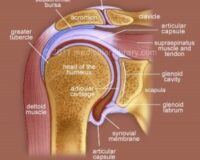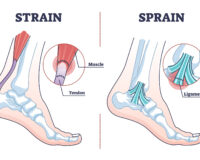
Fibromyalgia
Fibromyalgia is a largely misunderstood diagnosis, and a difficult syndrome to diagnose. It affects approximately 2-5% of the population, most of which are women aged 20-40 years old.
Fibromyalgia is a chronic condition causing pain in the muscles and bones, with the extra symptoms of feeling tired and sleeping poorly.
What causes Fibromyalgia?
This is a difficult question, and one that has divided researchers. It is difficult to determine a direct cause, as there is often no physical evidence of injury (according to different tests). In other words, even though the muscles, bones and joints feel stiff and sore, there is often no specific problem with them. The main theory of cause presently is that there is a problem with how the brain processes pain. This means that the pain is absolutely real, however it is the brain that is perceiving the problem rather than the soft tissues of the body. In this way, it has been referred to as a “sensitivity problem” as there appears to be an overactive and hypersensitive pain system.
There is some evidence to suggest that Fibromyalgia is more common amongst people with inflammatory arthritis, viral illness (or following), pain from trauma/injury, and people who have experienced depression and significant emotional stress. Unfortunately, often it has no specific cause.
What are the usual symptoms?
The most common symptoms are:
- Generalised pain and stiffness in the muscles and bones, lasting for longer than 3 months (chronic)
- Fatigue
- Sleeping difficulties
- Psychological symptoms such as anxiety, depression and emotional distress (which may also increase other symptoms at the same time)
- Concentration difficulties
- Occasionally, numbness and tingling into the arms/legs
The following diagram demonstrates the 18 points (9 pairs) that are consistently painful in people who have Fibromyalgia.
In addition, because it is closely linked to other syndromes, sufferers may also be affected by Irritable Bowel Syndrome and Chronic Fatigue Syndrome.
How do I know if I have Fibromyalgia?
In terms of diagnosing fibromyalgia, it is largely based on an absence of other diagnoses. There may be blood tests and/or X-rays performed to eliminate bone and muscle injury, and other issues including auto-immune illnesses. But basically, if your GP feels that your presentation of pain and fatigue fits a pattern of fibromyalgia, then they may suggest this as your diagnosis.
What are the treatment options?
Unfortunately there is no cure for fibromyalgia, however there certainly are methods that help to reduce the symptoms of pain and stiffness.
Regular exercise is paramount in combatting fibromyalgia. However, I would suggest it should be gentle exercises, such as Pilates or Hydrotherapy, to avoid any excess fatigue or pain afterwards. A gradual build up will also be important, and it will also be important to monitor your symptoms as you go. Exercise can be very successful, especially considering there is no direct injury to the muscles, joints or bones. Your physiotherapist can help to direct you and suggest a personalised program for you to follow.
Psychological treatments may work well also, and may include techniques for stress management, relaxing prior to sleep, mindfulness practice and/or cognitive behaviour therapy. These techniques often work very well as they can help to settle the brain, which as we know is one of the main driving forces behind fibromyalgia.
Conclusion
If you are keen for further information, Arthritis Australia have some great information, including a brochure on Fibromyalgia. Health Direct also has some useful information
Resources:
Health Direct: https://www.healthdirect.gov.au/fibromyalgia
Arthritis Australia: https://www.arthritissa.org.au
If you are interested in commencing a Pilates program with us at Therapia Physiotherapy and Pilates (your Pilates program is personalised, specific for your needs, closely supervised and monitored), please feel free to contact us on (08) 8221 5011, or email us at info@therapia.com.au. In addition, we can provide a personalised home exercise program for you if you are keen.
Book Appointment




